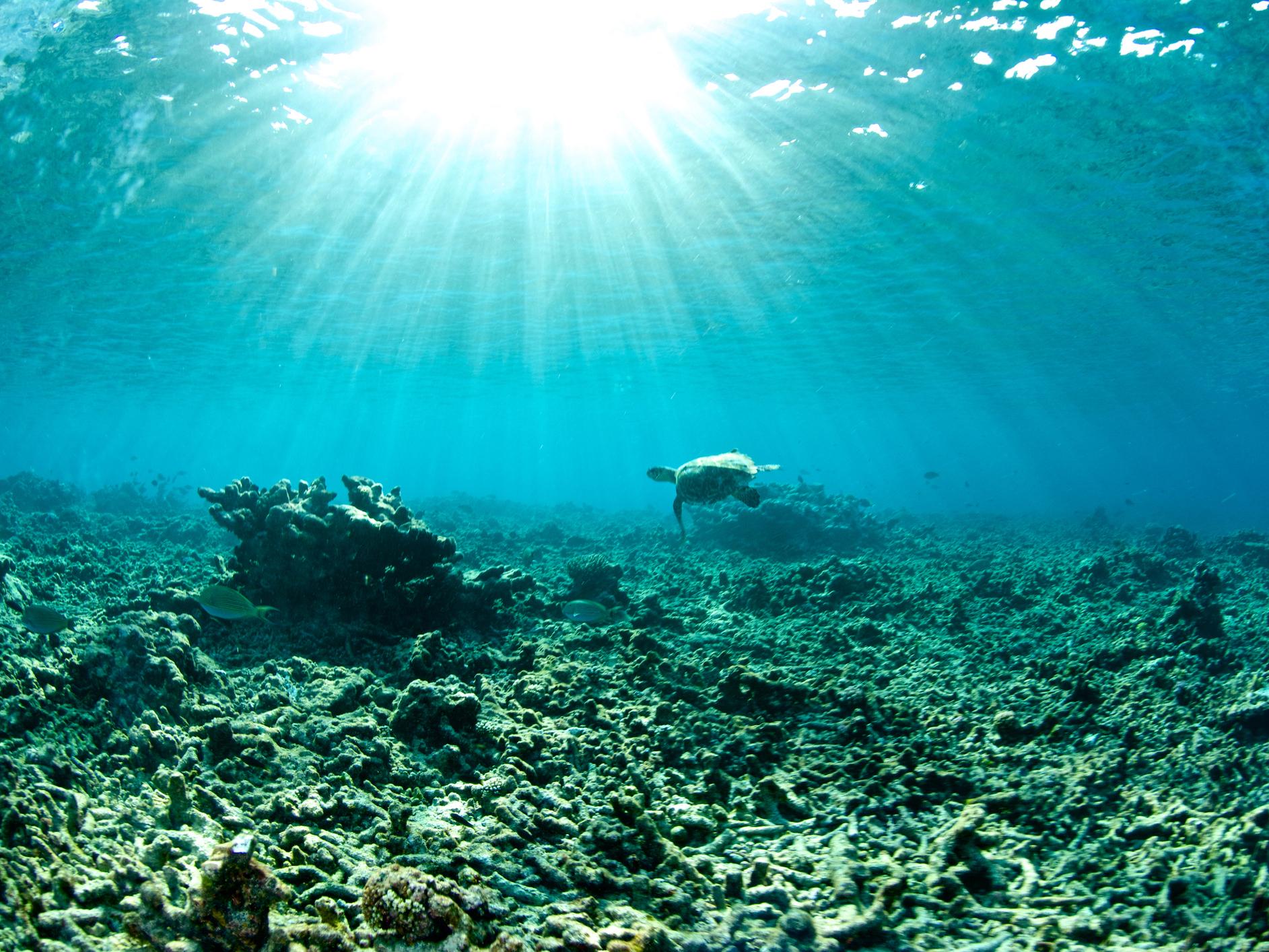Deadly ocean heatwaves were made over 50 times more likely by climate change, scientists report
Periods of higher temperatures in world's seas, which can devastate marine wildlife, will be more frequent in future

Your support helps us to tell the story
From reproductive rights to climate change to Big Tech, The Independent is on the ground when the story is developing. Whether it's investigating the financials of Elon Musk's pro-Trump PAC or producing our latest documentary, 'The A Word', which shines a light on the American women fighting for reproductive rights, we know how important it is to parse out the facts from the messaging.
At such a critical moment in US history, we need reporters on the ground. Your donation allows us to keep sending journalists to speak to both sides of the story.
The Independent is trusted by Americans across the entire political spectrum. And unlike many other quality news outlets, we choose not to lock Americans out of our reporting and analysis with paywalls. We believe quality journalism should be available to everyone, paid for by those who can afford it.
Your support makes all the difference.A heatwave that struck a quarter of the world’s oceans in 2016 was made far more likely by climate change, according to a new study.
Nicknamed “the blob” when it appeared in the eastern Pacific, the mass of warm water was linked with the deaths of marine animals and the devastation of ecosystems.
Ocean water naturally goes through phases of higher temperatures – notably the event known as El Niño, which leads to periods of warmer water in the Pacific Ocean.
Climate change is also thought to contribute to some of this temperature fluctuation, but it can be difficult establishing the exact contribution it makes.
However, a team of Australian scientists has concluded the heatwave of 2016 was influenced by anthropogenic – that is, human-induced – climate change.
The research focuses on warming around northern Australia, which resulted in mass coral bleaching, and the northern Pacific Ocean between Alaska and Russia.
Extreme temperatures in the Gulf of Alaska have been linked with the deaths of thousands of seabirds and whales during this period.
The new study, published in the Bulletin of the American Meteorological Society, builds on work led by Dr Eric Oliver of the University of Tasmania that explored the causes of the 2016 heatwave in south east Australian seas.
“Scientists are inherently conservative about making grand claims, but we can say with 99 per cent confidence that anthropogenic climate change made this marine heatwave several times more likely, and there’s an increasing probability of such extreme events in the future,” said Dr Oliver, in reference to the earlier work.
In the new analysis carried out by Dr Oliver and his collaborators, they concluded underwater heatwaves in their study regions had been made 53 times more likely as a result of human-induced climate change.
The heatwaves seen in the northern Pacific and Australia in 2016 were both the most intense and longest lasting on record.
Using sea temperature records and climate models, the scientists were able to compare observed outcomes to outcomes that would have resulted without climate change induced by greenhouse gas emissions.
In doing so, they established that the observed heatwaves had been impacted by climate change.
Though climate change did not cause the 2016 heatwave, it increased the likelihood an event of its magnitude would take place.
These results add to a growing body of scientific work that seeks to understand to what extent natural disasters and extreme weather events can be attributed to climate change.
“We are finding that events like the recent Alaskan marine heatwave crop up a lot more in future decades in climate model simulations,” Dr Nick Bond, a climatologist at the University of Washington, told National Geographic.
The implication of this research is that deadly events like the 2016 heatwave are more likely to take place in the coming years.
Join our commenting forum
Join thought-provoking conversations, follow other Independent readers and see their replies
Comments